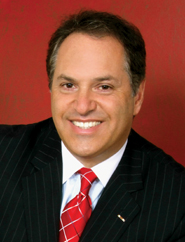Traders at sellside and more traditional buyside firms who want to work for top-notch proprietary firms may want to consider returning to school.

"Traders’ resumes are going to look a lot more like academic curricula vitae than normal resumes–[they’ll look like] the kind that people hired by Bell Labs have," said Alan Guarino, a senior client partner at Korn/Ferry executive recruiting firm.
Academic qualifications will be less important for experienced traders, but they’ll have to clearly demonstrate math skills. "If you’ve worked at Renaissance Technologies for several years, then folks can assume you have what it takes," Guarino said.
But buyside traders will have to be "students of the sellside," he said. They’ll need to understand which algorithms are cutting-edge and the nuances of ever-multiplying trading venues.
Michael Karp, chief executive of Options Group, said buyside firms value analytical skills, too, but they treasure the ability to manage risk, which comes from experience. "Most buyside firms will go to a broker or prop trading firm and find someone who has been in the business 15 years and already understands the models," he said.
Sellside traders must completely understand the products they’re selling, so their knowledge will need to be deeper. "It won’t be a bad thing if the sellside trader is conversant in how an algo is designed–the data it’s analyzing, the kinds of signals it’s using, etc.," said Guarino.
Karp said the big banks are increasingly putting emphasis on quantitative skills. "If your kid is 18 years old and wants to work on a trading desk, I’d tell them to get into a math or computer science program," he said.



